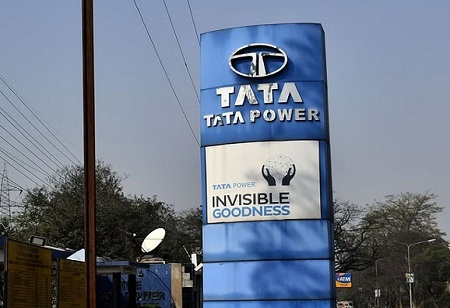A high-voltage 400 KV line corridor for Mumbai has been presented to the state government and the state regulatory authority by Tata Power, one of India's major integrated power corporations. The city's rising need for power will be met in part by this new 400 KV transmission corridor, which will also enable increased distribution of electricity up to 15,000 MW in the future.
This project, if allowed, might take four to five years to complete and could cost up to Rs 1,000 crore. The transmission line will be constructed as a ring with two 30 km-long hemispheres. Both hemispheres serve as fallbacks in the event that one fails.
Sanjay Banga, president of transmission and distribution at Tata Power in Mumbai, "the efficiency and dependability will be hampered in the lack of high voltage transmission lines within the city." Presently, 110 KV and 220 KV lines are used to supply Mumbai's 3,500 MW worth of
demand. "Tata Power can source twice that capacity on a single cable from outside Mumbai using 400 KV lines. On the same lines, it can even deliver up to 15,000 MW of power "Banga continued. Mumbai won't have a power crisis this summer, according to Tata Power, and its load increase won't be as rapid as the country's. "In Mumbai, there won't be any power shortages. Our PPAs (power purchase agreements) are for 1400 MW, but our peak consumption is around 1000 MW. Therefore even a 10%–20% increase in demand won't have any effect "Banga stated.
Around 70% of Mumbai's power transmission is controlled by Tata Power. Mumbai experienced a power outage on October 12, 2020, that in some areas lasted up to 12 hours. After then, there were two further disruptions, but of a smaller scale. Tata Power's chief of transmission, Vishwas Shrikhande, stated that following the outages, the business had implemented a number of measures, including investing Rs 200 crore to increase a line's transmission capacity from 1,200 MW to 1,800 MW.
Over the previous five years, the business claimed to have invested Rs 2,300 crore in enhancing the transmission system. This involved replacing as much as 90% of the outdated systems. In order to improve transmission, the business intends to invest an additional Rs 700 crore during the upcoming year. A new SCADA system was also purchased by the business to upgrade its security architecture.
Tata Power anticipates that Mumbai's peak electricity consumption would reach 4,000 MW this summer, up from the 3,300 MW recorded in recent days as a result of temperature increases. Banga, Mumbai would experience a smaller increase than the rest of the nation because the city's per-capita power consumption is greater than the national average of 1,200 units at around 2,100 units. Tata Power share was trading at Rs 185.40, up 0.79%. Standard Sensex increased by 0.02%.
